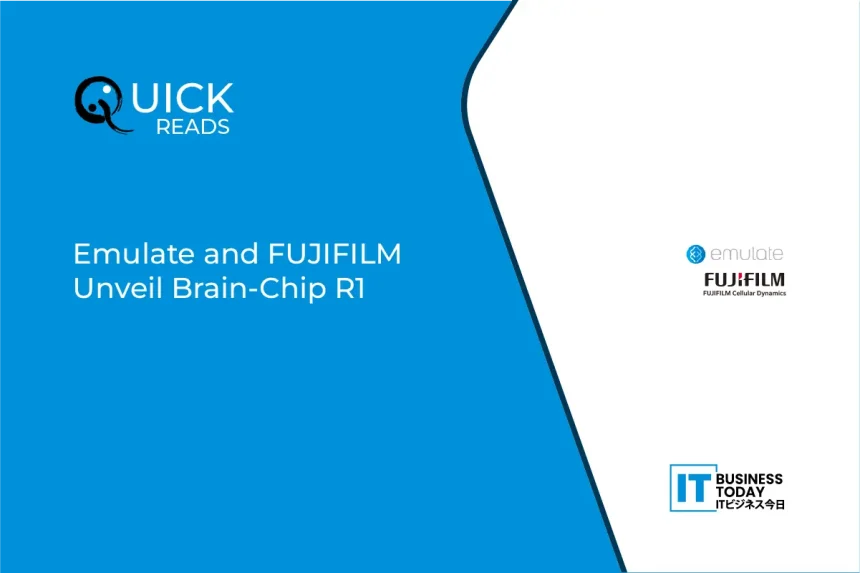Emulate and FUJIFILM Cellular Dynamics have launched the Brain-Chip R1, a new model of the human neurovascular unit. It is designed to help researchers study drug transport across the blood-brain barrier and understand neuroinflammation. The Brain-Chip R1 combines FUJIFILM iPSC-derived cells with Emulate’s proprietary brain microvascular endothelial cells.
Central nervous system diseases like Alzheimer’s and Parkinson’s affect millions, but drug development is slow. Traditional animal models and 2D cell cultures fail to mimic the human brain accurately. More than 99 percent of potential CNS drugs fail in development because of this. The Brain-Chip R1 represents an approach that is closer to human functioning. It puts together five kinds of human iPSC-formed cells, namely, neurons, microglia, astrocytes, pericytes, and endothelial cells, in a moving liquid situation. This arrangement reconstructs major characteristics of the neurovascular unit like the constant barrier and the active glial cells. Through this, scientists gain a better understanding of the whole area of disease mechanisms, drug transport, and inflammatory response studies.
Also Read: BostonGene partners with Kyoto University on AI drug R&D
The system comes with ready-to-use cells and culture media. This removes the need for time-consuming differentiation and reduces variability. The Brain-Chip R1 is part of the Emulate BioKit and works with the Zoë Culture Module. The collaboration brings together Emulate’s Organ-on-a-Chip expertise and FUJIFILM’s iPSC manufacturing to provide a scalable, reproducible solution for CNS drug discovery.







